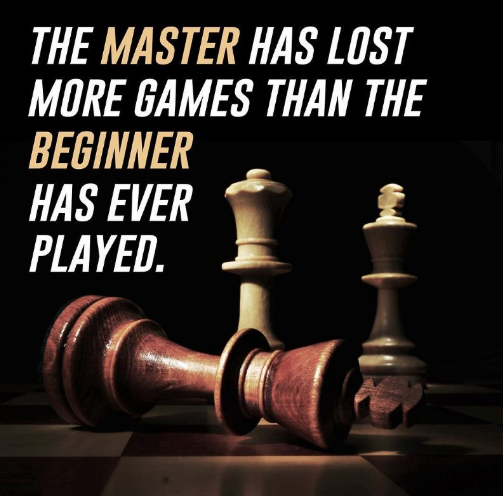
by IM Eric Rosen
Let’s face it. Everyone likes to win. Winning is fun. It fills you with joy and pride, and gives you bragging rights. Unfortunately, too many chess players, coaches, and parents put way too much emphasis on winning. While winning is certainly an important part of any competitive activity, it is should not necessarily be labeled as the only goal. What can possibly be more important than winning? Learning.
Coping with loss.
As much as everyone likes to win, the opposite also holds true. Players hate to lose. Especially kids. They cry, throw tantrums, or sometimes even punch a hole in the wall. While observing the Chess for Rookies class, I noticed one of the younger players (perhaps 5 or 6 years old) lose his queen early in a game. He started to cry. The kid was heartbroken. Fortunately, the older kids provided him with some comfort. They pointed out that he still had both rooks and all his minor pieces. They also said that if a pawn could reach the end of the board, the kid could get his queen back. That made him feel a bit better.
Sometimes chess is the first time young children are introduced to the concept of loss. It can be traumatic. Losing and making mistakes is an important aspect of growth in any activity, and it is the job of parents and coaches to help children see this. Being exposed to loss at a young age can be extremely helpful in learning how to deal with disappointment. Over time, chess teaches kids how to cope with losing. It is necessary to accept the mistakes you made (no matter how severe), determine what could have been improved, and apply the lessons for the future.
Once young players understand that losing is a natural and inevitable part of being a chess player, tremendous growth can take place. I constantly tell students “don’t play to win. Play to learn.” No one should fear losing. If you take a risk and lose, it will make you a stronger player. Such an approach is critical for long-term improvement. It is often said, “The master has lost more games than the beginner has ever played.”
Several years ago, I watched the following Ted Talk about growth mindset. It inspired me to think about how growth mindset can be applied to chess.
https://www.youtube.com/watch?v=pN34FNbOKXc
Here are some rule/tips to help players develop a growth mindset in chess...
-
Don’t accept any draw offers! If the position has any life to it, play on! You will learn more from it.
-
Change up your openings on occasion. Experiencing new types of positions will expose you to new ideas and improve your overall chess.
-
Seek out every opportunity to play stronger competition.
-
Analyze every single game you play. Find at least a few lessons from both wins and losses.
Challenge yourself! Stretch your limits by attempting high level problems or playing blindfold chess. Even if you struggle at first, it will help you in the long run!


